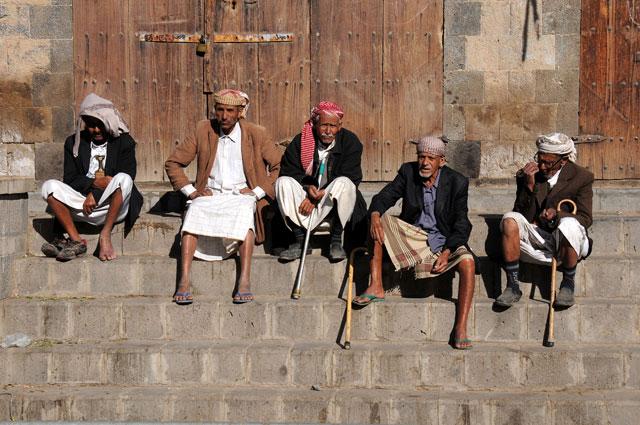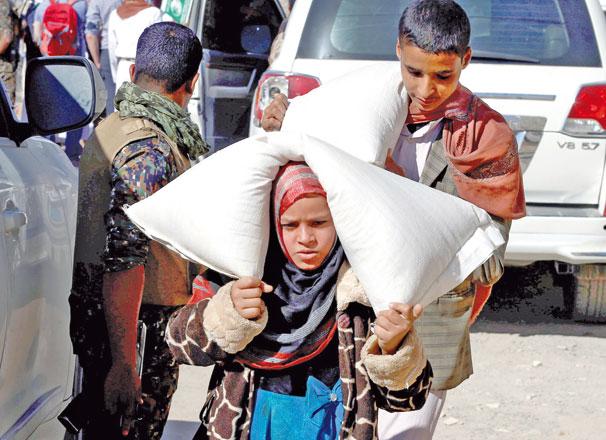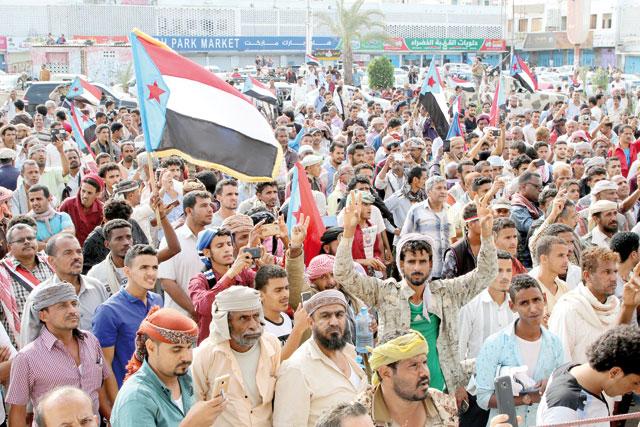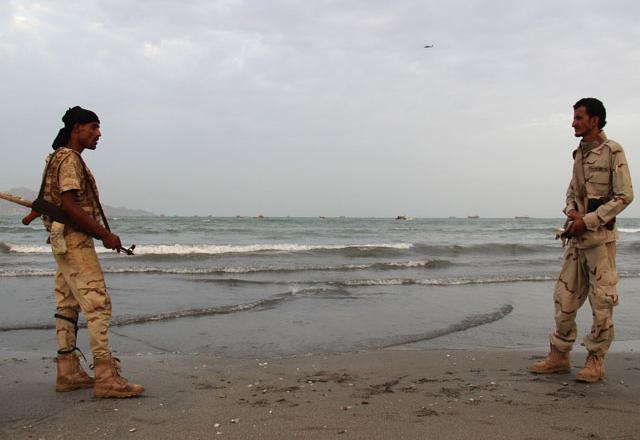You are here
Southern Yemen separatists want Saudi-backed government overthrown
By Reuters - Jan 21,2018 - Last updated at Jan 21,2018

Five men sit on stairs in front of a wooden door at Al Milh market in Sanaa, Yemen, on Friday (Anadolu Agency photo)
ADEN — Southern Yemeni separatists declared a state of emergency in the port city of Aden on Sunday and vowed to overthrow the internationally recognised government, the group said, in a move that puts the two allies on a collision course.
The announcement underscores rising tensions between southern separatists, who are allied with the United Arab Emirates (UAE), and President Abed-Rabbu Mansour Hadi's government over control of the southern half of Yemen.
Hadi's government has been energised after Saudi Arabia deposited $2 billion into the central bank to shore up the rial.
The government has been nominally based in the southern port city of Aden since the coalition, with help from southern fighters, drove the Iran-aligned Houthis out of the city in 2015.
Prime Minister Ahmed Bin Daghr, who has been struggling to assert his government's control over southern Yemen, has announced the first state budget since 2014.
At a meeting in Aden on Sunday, the Southern Transitional Council accused Bin Daghr's government of starving Yemenis and pushing the impoverished country to the verge of famine.
"The Southern Resistance Forces (SRF) declare a state of emergency in Aden and announce that it has begun the process of overthrowing the legitimate government and replacing it with a Cabinet of technocrats," the statement issued after the meeting said.
The statement did not give any details on what it intends to do to topple the government, but it said it was giving Hadi a week to comply and dismiss his Cabinet before starting the process.
The SRF will become the core of a new force that will rebuild security in southern Yemen and military institutions, the statement said. It added that it banned military forces and officials from northern Yemen, including members of Hadi's government, in southern provinces.
One of the main differences between the two sides is that the UAE, a key member of the Saudi-led coalition, is hostile towards Islamists, but Hadi's Cabinet is formed mostly by the Islah Party, seen as linked with the Muslim Brotherhood.
The new spat could jeopardise a rare opportunity offered by the killing of former president Ali Abdullah Saleh last month, that Saudi Arabia intended to seize to isolate the Houthi movement.
Southern forces have previously clashed with Hadi supporters, including members of Islah party, over control of strategic areas, including Aden airport and oil facilities.
With thousands of fighters deployed on battlefronts against the Houthis, Islah has been an important ally of Hadi and the Saudi-led coalition trying to reinstate his government.
Since the coalition intervened in Yemen, Islah has tried to distance itself from the Brotherhood in an effort to ease Gulf rulers' anxiety about its Islamist ideology.
Related Articles
ADEN — Yemen's internationally-recognized government said on Saturday it had banned public gatherings in Aden ahead of a deadline given by s
ADEN, Yemen — Four people were killed on Monday in a second day of fighting between rival factions seeking control of the southern Yemeni po
ADEN — Deprived of sleep by temperatures of over 40 degrees, Azal Mohammed was among dozens of young men burning tyres last month to protest


















